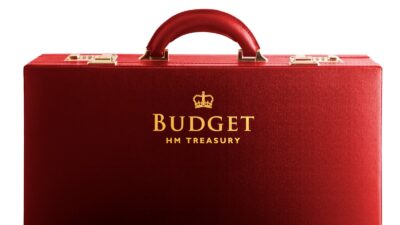Shares in cigarette giant British American Tobacco Group (LSE: BATS) fell by 2.5% this morning, after the firm said it could have to pay damages of CAD$10.4bn (£5.5bn) to smokers in Canada.
To put this fine in context, BAT’s operating profit was £4.5bn in 2014.
The ruling is the outcome of a ten-year legal case against BAT’s Canadian subsidiary, Imperial Tobacco Canada, along with the Canadian subsidiaries of Philip Morris International and Japan Tobacco International.
The case was brought by two groups of smokers. The first were diagnosed with lung, throat and laryngeal cancer or emphysema before 12 March 2012, having smoked for at least 12 pack-years. The second group were smokers addicted to nicotine from before September 1998 until at least 21 February 2005.
(A pack-year is equivalent to smoking one pack of 20 cigarettes every day for a year.)
Will BAT have to pay?
This isn’t the first time Big Tobacco has faced damages of this kind. The tobacco industry has a strong track record of overturning or reducing such penalties on appeal.
This morning, BAT confirmed that Imperial Tobacco Canada will seek to appeal the fine. The judge in the case appears to have expected this outcome. He also ruled that should the firms appeal, they would have to make an interim payment of CAD$1.13bn, of which Imperial Tobacco Canada’s shares would be $743m.
However, BAT said this morning that Imperial Tobacco Canada will also seek to stay this order, and does not intend to make any payments in the meantime.
The tobacco industry’s approach to these rulings has always been to appeal and delay as much as possible. This case has, after all, already been running for ten years. Many of the original plaintiffs will now be dead.
The reason the tobacco firms always fight is to reduce the risk that a rare successful action will open the door to an unaffordable flood of compensation claims. Today’s ruling suggests this risk remains valid.
A better choice?
Could energy firms such as BP (LSE: BP) (NYSE: BP.US) actually be less risky than tobacco stocks?
Although BP may have to pay a fine of between $5bn and $20bn for the Gulf of Mexico oil spill, this was essentially a one-off.
In contrast, the liability risks facing tobacco firms are only likely to get worse. Even China, the world’s largest tobacco market, is now starting to implement anti-smoking measures.
What’s more, the tobacco market is in structural decline. BAT’s cigarette volumes have fallen by almost 8% since 2009. Global oil and gas demand is expected to continue rise for the foreseeable future.
BP vs BAT
Most people accept that tobacco is dangerous and oil and gas damage the environment. Yet the big firms which produce them have been great investments and enjoy strong valuations:
|
BAT |
BP |
|
|
2015 forecast P/E |
16.9 |
17.2 |
|
2015 forecast yield |
4.4% |
5.9% |
Expectations of future profit growth remain high.
BP’s earnings per share are expected to bounce back and rise by 31% in 2016, putting the oil firm’s shares on a 2016 P/E of only 13.
BAT is expected to increase earnings and the dividend by 5-7% in 2016.
Ethical views may affect your choice, but in pure investment terms, I believe both BP and BAT are attractive income buys at today’s prices.







